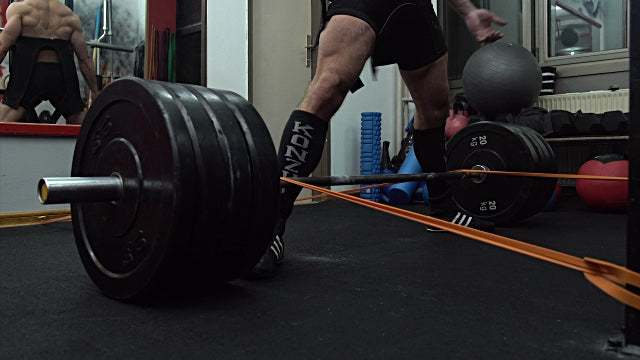Your Cart is Empty
Due to Covid-19 all products are currently unavailable

Authors
Wankhede S 1 , Langade D 2 , Joshi K 3 , Sinha SR 4 , Bhattacharyya S 5 .
Link
https://www.ncbi.nlm.nih.gov/pubmed/26609282
Study Results
Withania somnifera (ashwagandha) is a prominent herb in Ayurveda. This study was conducted to examine the possible effects of ashwagandha root extract consumption on muscle mass and strength in healthy young men engaged in resistance training.
In this 8-week, randomized, prospective, double-blind, placebo-controlled clinical study, 57 young male subjects (18-50 years old) with little experience in resistance training were randomized into treatment (29 subjects) and placebo (28 subjects) groups. Subjects in the treatment group consumed 300 mg of ashwagandha root extract twice daily, while the control group consumed starch placebos. Following baseline measurements, both groups of subjects underwent resistance training for 8 weeks and measurements were repeated at the end of week 8. The primary efficacy measure was muscle strength. The secondary efficacy measures were muscle size, body composition, serum testosterone levels and muscle recovery. Muscle strength was evaluated using the 1-RM load for the bench press and leg extension exercises. Muscle recovery was evaluated by using serum creatine kinase level as a marker of muscle injury from the effects of exercise.
Compared to the placebo subjects, the group treated with ashwagandha had significantly greater increases in muscle strength on the bench-press exercise (Placebo: 26.4 kg, 95% CI, 19.5, 33.3 vs. Ashwagandha: 46.0 kg, 95% CI 36.6, 55.5; p = 0.001) and the leg-extension exercise (Placebo: 9.8 kg, 95% CI, 7.2,12.3 vs. Ashwagandha: 14.5 kg, 95 % CI, 10.8,18.2; p = 0.04), and significantly greater muscle size increase at the arms (Placebo: 5.3 cm(2), 95% CI, 3.3,7.2 vs. Ashwagandha: 8.6 cm(2), 95% CI, 6.9,10.8; p = 0.01) and chest (Placebo: 1.4 cm, 95% CI, 0.8, 2.0 vs. Ashwagandha: 3.3 cm, 95% CI, 2.6, 4.1; p < 0.001). Compared to the placebo subjects, the subjects receiving ashwagandha also had significantly greater reduction of exercise-induced muscle damage as indicated by the stabilization of serum creatine kinase (Placebo: 1307.5 U/L, 95% CI, 1202.8, 1412.1, vs. Ashwagandha: 1462.6 U/L, 95% CI, 1366.2, 1559.1; p = 0.03), significantly greater increase in testosterone level (Placebo: 18.0 ng/dL, 95% CI, -15.8, 51.8 vs. Ashwagandha: 96.2 ng/dL, 95% CI, 54.7, 137.5; p = 0.004), and a significantly greater decrease in body fat percentage (Placebo: 1.5%, 95% CI, 0.4%, 2.6% vs. Ashwagandha: 3.5%, 95% CI, 2.0%, 4.9%; p = 0.03).
This study reports that ashwagandha supplementation is associated with significant increases in muscle mass and strength and suggests that ashwagandha supplementation may be useful in conjunction with a resistance training program.